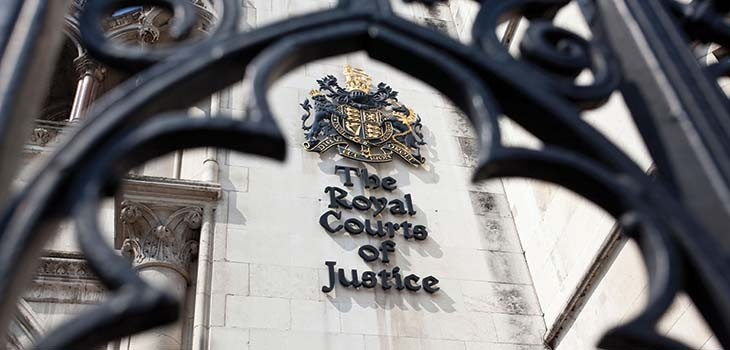
The next Lord Chief Justice will surely be a woman. There is a formidable pool of talent—an embarrassment of riches.
The incumbent, Lord Burnett, has been in post since 2017 and, at the age of 64, has years of judicial life ahead. However, he will surely at some point look to a new challenge. Predecessors Lord Bingham and Lord Phillips both moved on to join what is today the Supreme Court.
Strong candidates to succeed include Dame Kathryn Thirlwall and Dame Ingrid Simler. The latter is also in the frame for elevation to the Supreme Court, as is Dame Sue Carr. No one doubts that Sir Rabinder Singh will be promoted, and sooner rather than later.
Naming & shaming
The working party responsible for the onerous trial witness statement rules in the Business and Property Courts made no bones about it. A solicitor who failed to comply would be named and shamed. Well, now it has happened. The individual concerned I know to be utterly diligent and decent. Fancourt J had harsh words to say about both the witness and the solicitor who certified compliance in Greencastle MM LLP v Payne and others [2022] EWHC 438 (IPEC): ‘I have real doubt whether either of them has read the Practice Direction or, if they have, whether they understood the effect and purpose of it.’ Having concluded that this was ‘an egregious case of serious non-compliance with the Practice Direction’, the judge decided, with trial imminent, to withdraw permission for the witness to give evidence but to permit the claimant to prepare a replacement, fully compliant statement within six days. That was tidier than performing surgery upon the defective statement. It was for the defaulting party, rather than the court or defendant, to bear the burden and costs of perfecting their witness statement.
Such was the demand for guidance on the new rules last spring that on one day, thanks to the power of Zoom, I gave three talks back-to-back. What intrigued me was widespread confusion and occasional ignorance of the underlying rules. Call me old-fashioned, but I had foolishly thought that measures introduced on 26 November 1992 might somehow have been absorbed by now. Just to be clear—the 2021 rules only apply to trial witness statements in the Business and Property Courts. The 1992 measures therefore apply to statements deployed outside trial, and obviously to all used in other courts.
Cash in the accident
A new edition of the Judicial College Injury Guidelines was published earlier this month. The scope of guidance has expanded over the years. I recall the edition which first recognised adverse incidents at the hairdressers! New for 2022 is guidance on awards for sexual abuse, of which there are so many grim claims. The government whiplash reforms are also factored in. The maximum figure for general damages rises to a curiously odd sum of £403,990. It applies to tetraplegia and the most severe brain injury.
Despite being the youngest ever member of the panel, Stuart McKechnie QC was denied his wish for the cover to be in the colours of his beloved Norwich City.
Out of service
Those who gawp at accident scenes and relish misery ought to read a few cases, of which there are so many, dealing with the service of claim forms. Look away now if you don’t want to know how it ends…
It ends horribly, time after time. The latest episode involved R (on the application of The Good Law Project Ltd) v Secretary of State for Health and Social Care [2022] EWCA Civ 355, [2022] All ER (D) 94 (Mar). Despite Lord Sumption declaring in Barton v Wright Hassall LLP [2018] UKSC 12, [2018] All ER (D) 109 (Feb) that the law was so clear that a moron in a hurry could not be confused by the rules (a Regan distillation of the essence), the Court of Appeal was divided in The Good Law Project. The majority held service to be bad. An attempt is to be made to run this up to the Supreme Court.
I unquestionably accept that leaving service to the end of a limitation period is Russian roulette for claimants, and it is right that the threat of an action should eventually evaporate through the effluxion of time. However, the rules do not flow sweetly. The Master of the Rolls wants to simplify the rules of court. He would do everyone, including himself, a big favour if service was rewritten from scratch.
200 years & counting…
In this special edition of NLJ, I wanted to lavish praise on our editor, Jan Miller. It was she who in 2009 invited me to write for her. It had never occurred to me that anyone would be willing to read what I wrote. This very column came about over a ‘working dinner’ at Hawksmoor at Air Street in London. Jan suggested both title and concept, and left me to it.
I have read NLJ for decades. Last century there was a questionnaire asking readers what they liked best. For me, it was ‘Civil way’ by Stephen Gold and ‘Employment law brief’ by Professor Ian Smith. They both continue to educate and entertain, which is the greatest gift. Those who are entertained probably don’t realise they are being educated, but they most certainly are.
Professor Dominic Regan of City Law School, director of training at Frenkel Topping Group & NLJ columnist (@krug79).










